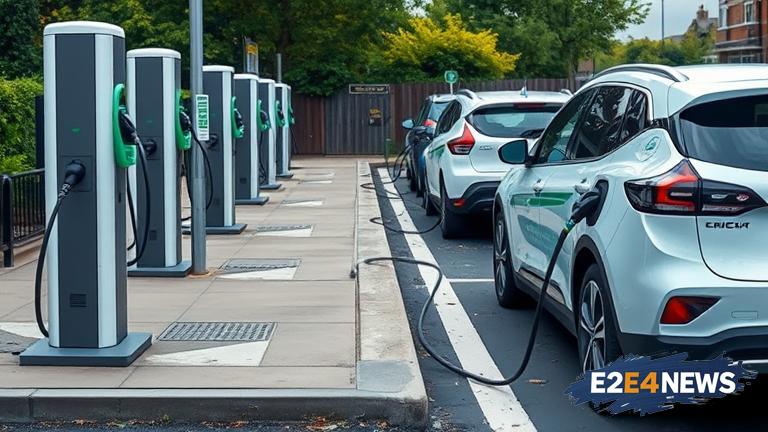The UK’s electric car market is experiencing a significant surge in demand, with more and more drivers making the switch to eco-friendly vehicles. However, this increased demand has put a strain on the country’s public charging infrastructure, resulting in lengthy wait times for drivers. According to recent reports, some electric car drivers are facing queues of up to 10 minutes at public charging stations, highlighting the need for further investment in the UK’s charging network. The issue is particularly pronounced in urban areas, where the demand for charging points is highest. Drivers are taking to social media to express their frustration, with many calling for the government to take action to address the shortage of public charging points. The UK government has set ambitious targets for the adoption of electric vehicles, with plans to ban the sale of new petrol and diesel cars by 2030. However, the lack of adequate charging infrastructure threatens to undermine these efforts. The problem is not limited to the UK, with many countries around the world struggling to keep pace with the growing demand for electric vehicles. In the UK, the issue is being exacerbated by the fact that many public charging points are still owned and operated by private companies, which can make it difficult for drivers to find reliable and affordable charging options. The government has announced plans to invest in the expansion of the UK’s charging network, but many drivers are calling for more urgent action to be taken. The queues at public charging stations are not only frustrating for drivers, but they also pose a significant challenge for the widespread adoption of electric vehicles. If drivers are unable to reliably charge their vehicles, they may be less likely to make the switch to electric. The UK’s charging network is currently comprised of a mix of slow and fast chargers, with the latter capable of charging vehicles to 80% in under an hour. However, even the fast chargers are often in short supply, particularly in rural areas. The shortage of public charging points is also having a disproportionate impact on certain groups, such as taxi drivers and delivery drivers, who rely on their vehicles for their livelihoods. These drivers often have limited access to private charging points and are therefore more reliant on the public charging network. The UK government has announced plans to increase the number of public charging points, with a goal of having at least 50,000 points in place by 2025. However, many drivers are skeptical that this target will be met, given the current pace of progress. The issue of public charging infrastructure is complex and multifaceted, and it will require a coordinated effort from government, industry, and other stakeholders to address. In the short term, drivers are being advised to plan their journeys carefully and to make use of online tools to find available charging points. However, in the long term, more fundamental changes will be needed to ensure that the UK’s charging network is able to meet the demands of a rapidly growing electric vehicle market. The UK’s electric car market is at a critical juncture, and the success of the government’s plans to promote the adoption of electric vehicles will depend on the ability to address the shortage of public charging points. With the right investment and planning, it is possible to create a comprehensive and reliable charging network that will support the widespread adoption of electric vehicles. However, if the issue is not addressed, it could have serious consequences for the UK’s ability to meet its climate change targets and to reduce its reliance on fossil fuels. The UK government has a critical role to play in addressing the shortage of public charging points, and it must work closely with industry and other stakeholders to ensure that the necessary investment is made. The private sector also has a key role to play, and companies such as charging point operators and vehicle manufacturers must work together to develop innovative solutions to the challenge of public charging infrastructure. Ultimately, the success of the UK’s electric car market will depend on the ability to create a comprehensive and reliable charging network that meets the needs of drivers. With the right investment and planning, it is possible to create a thriving market for electric vehicles that will support the UK’s transition to a low-carbon economy.
